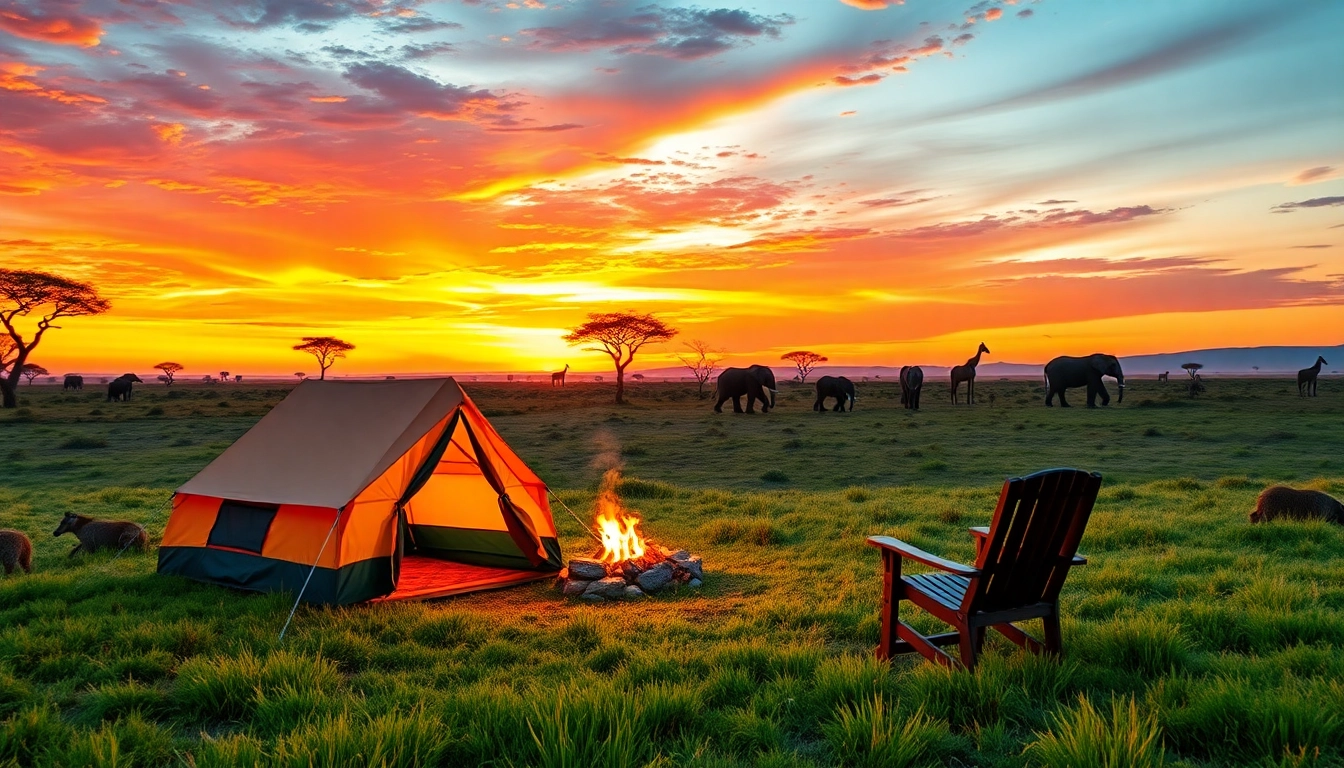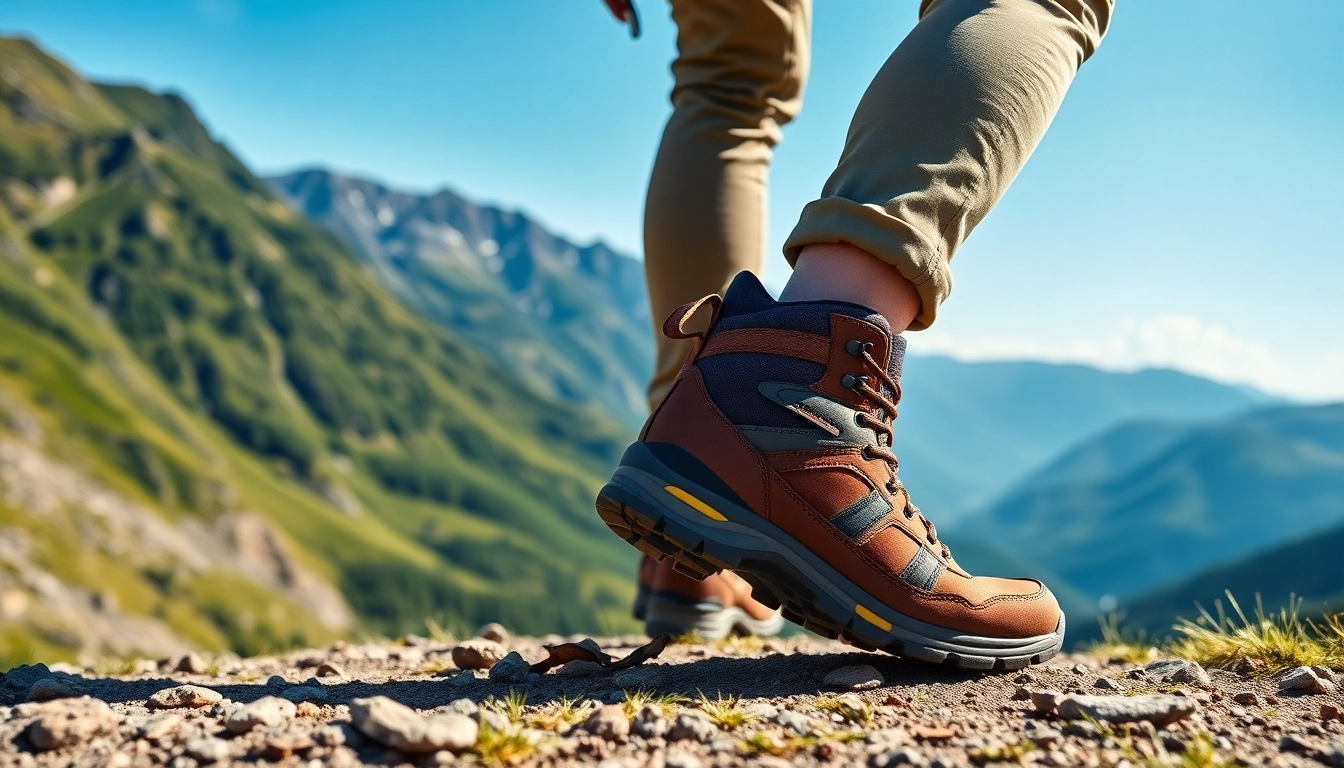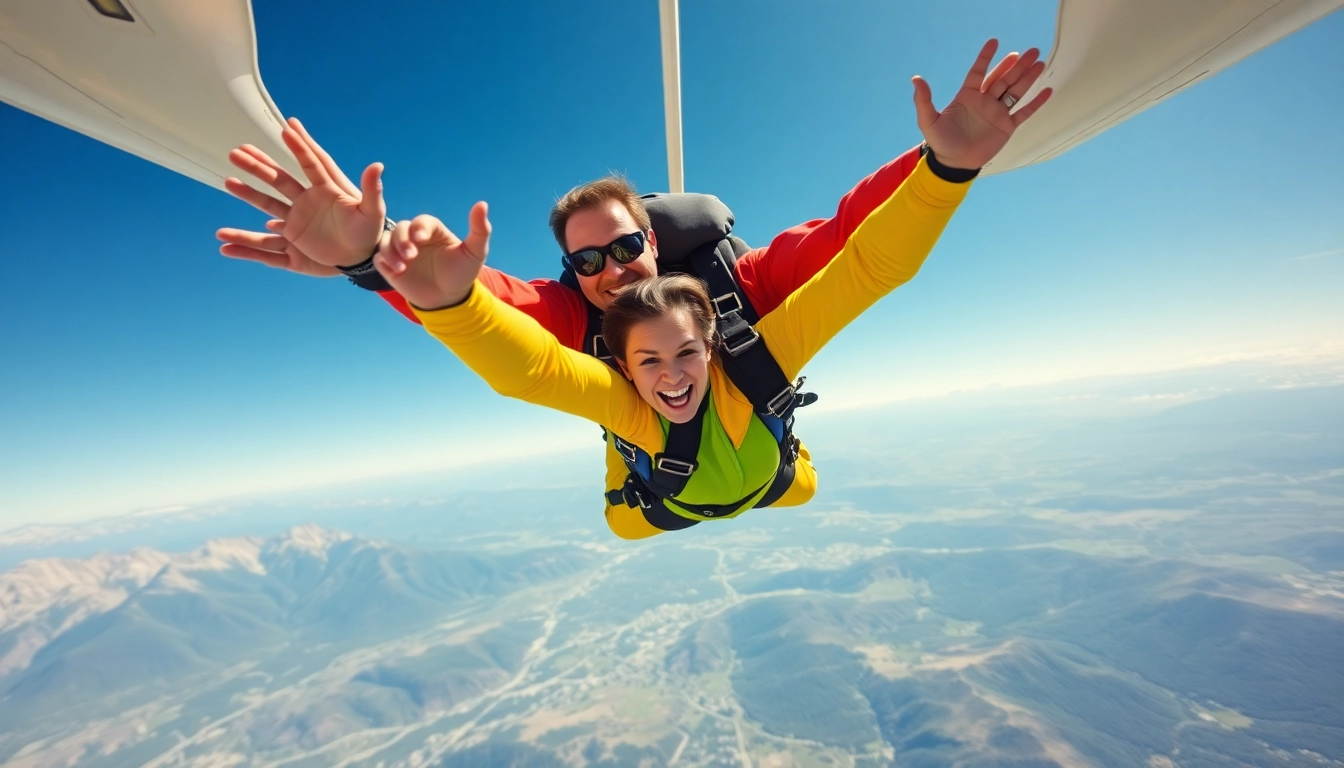Introduction to Tanzania Budget Camping Safari
Embarking on a Tanzania budget camping safari offers an unparalleled opportunity to immerse yourself in the breathtaking landscapes and exhilarating wildlife of one of Africa’s most iconic destinations. This adventure is not only budget-friendly but also rich in experiences that allow travelers to connect with nature and wildlife in a unique way. With the right planning and insights, anyone can enjoy the thrill of a safari without breaking the bank.
What is a Tanzania budget camping safari?
A budget camping safari in Tanzania typically involves exploring the majestic national parks and game reserves of the country while staying in affordable camping accommodations. These safaris are designed for those who wish to experience the wilderness intimately, enabling travelers to spend nights under the stars while being surrounded by the sounds of the wild. Camp setups usually include basic tents and communal dining facilities, offering a sense of camaraderie and community among fellow safari-goers.
Why choose budget camping safaris in Tanzania?
There are several compelling reasons to opt for budget camping safaris. Firstly, it provides a unique way to explore Tanzania’s stunning landscapes and diverse ecosystems up close. Contrary to misconceptions, camping isn’t about compromising on experience; rather, it can enhance your connection with nature. Secondly, these safaris are significantly more economical than luxury tours, allowing travelers to allocate their budget towards activities, park fees, and local experiences. Finally, camping safaris typically offer immersive experiences with local cultures and communities, enhancing the overall journey.
Essential prior knowledge for first-timers
For those new to safaris, understanding what to expect is crucial. Budget camping safaris often require a spirit of adventure and flexibility, as itineraries can be adjusted based on weather conditions and wildlife movements. Knowing basic camping etiquette and being prepared for a rustic lifestyle, including shared facilities and communal meals, can significantly enhance your experiences. Furthermore, being aware of the essential safety guidelines in the wild will empower travelers to enjoy their safari with confidence.
Planning Your Tanzania Budget Camping Safari
Best times to embark on a budget camping safari
Selecting the right time for your safari can impact the experience significantly. Typically, the dry season from June to October is considered the best time for budget camping safaris. During this period, wildlife is more concentrated around water sources, and the chances of spotting big cats and other game are higher. Conversely, the wet season, while lush and beautiful, poses challenges such as muddy roads and increased insect activity. Each season has its unique charm, so aligning your travel dates with personal interests and wildlife migrations is essential.
Important factors to consider while planning
When planning a budget camping safari, several factors should be taken into account:
- Itinerary Duration: Determine how long you can spend on safari. Many budget tours last from three to ten days, with longer trips offering greater exploration opportunities.
- Destination Priorities: Familiarize yourself with the key national parks you wish to visit, such as Serengeti, Ngorongoro Crater, and Tarangire.
- Campsite Quality: Research various camping options to understand the amenities available. Campsites can range from basic to more comfortable setups with additional facilities.
- Transportation: Pre-arranging transportation, whether via 4WD vehicles or shared buses, is essential to ensure a smooth safari experience.
- Health Preparations: Check vaccination requirements and travel insurance options, and pack necessary medications.
What to pack for your camping experience
Packing smart is key to ensuring a comfortable safari experience. Here’s a checklist of essentials for a budget camping safari:
- Camping Gear: Sleeping bags, light tents, and portable cooking equipment (if self-catering).
- Clothing: Lightweight, breathable clothing for daytime and warmer layers for cooler evenings. Neutral colors are recommended to blend into the natural surroundings.
- Footwear: Comfortable hiking boots or shoes essential for walking safaris and exploring campsites.
- Safety Items: A first aid kit, insect repellent, sunscreen, and refillable water bottles are vital.
- Technical Gear: Binoculars for wildlife observation, a quality camera, and power banks to keep devices charged.
Your Safari Itinerary: Must-Visit Destinations
Iconic parks to include in your luxury experience
Tanzania is home to some of the most renowned national parks in the world. When planning a budget camping safari, consider including these iconic destinations:
- Serengeti National Park: Famous for the Great Migration, the Serengeti offers breathtaking landscapes and a plethora of wildlife.
- Ngorongoro Crater: A UNESCO World Heritage site, the crater is a wildlife haven, featuring a high concentration of animals within a relatively small area.
- Lake Manyara National Park: Known for its diverse ecosystems and bird species, Lake Manyara presents stunning views with unique wildlife experiences.
- Tarangire National Park: Renowned for its large elephant herds and impressive baobab trees, Tarangire offers visitors a less crowded safari experience compared to other parks.
Recommended routes for an unforgettable journey
Planning your safari route is essential to maximizing your experience. Popular routes often include:
- Serengeti to Ngorongoro: Starting in the Serengeti and ending at Ngorongoro allows for wildlife viewing in successive habitats and landscapes.
- Lake Manyara to Tarangire: This route offers a contrasting experience between lush lakeside views and the more arid terrain of Tarangire.
- Multi-Park Itineraries: Consider a combination of parks, providing varied wildlife viewing opportunities and landscapes within one trip.
Unique wildlife experiences to look forward to
One of the most exciting aspects of a budget camping safari is the chance to witness Africa’s iconic wildlife. From spotting the “Big Five” (lion, leopard, elephant, buffalo, and rhinoceros) to experiencing the annual wildebeest migration, each moment holds potential for awe and inspiration. Additionally, many parks offer specialized experiences such as walking safaris and night drives, which can enhance your wildlife encounters and provide unique insights into animal behaviors.
Budgeting for Your Tanzania Budget Camping Safari
Understanding the costs involved in safaris
Budgeting effectively is essential when planning a safari. Here are the key cost considerations:
- Park Fees: Entrance fees for national parks and reserves can vary, typically ranging from $50 to $100 per person per day.
- Accommodation Costs: Budget camping can start around $200 per person per day, which usually includes meals and guided excursions.
- Transport Costs: Depending on whether you’re renting a vehicle or joining a group tour, transport costs can fluctuate significantly.
- Additional Activities: Allocate budget for extra excursions such as hot air balloon rides or guided walking tours.
How to find great deals and discounts
To make your budget go further, consider these strategies:
- Book in Advance: Early bookings often lead to discounts on both accommodations and transport.
- Off-Peak Travel: Traveling during the shoulder seasons can result in lower rates on park fees and accommodations.
- Research Package Deals: Look for safari packages that bundle accommodation, meals, and activities at a reduced price.
- Use Local Resources: Engaging with local operators can lead to authentic experiences at lower rates.
Saving tips for a more affordable trip
Here are a few additional tips to help you save money during your safari:
- Group Safaris: Join a group tour to share costs for transport and accommodations, reducing overall expenses.
- Cater Yourself: If possible, self-cater rather than relying solely on provided meals, allowing you to manage food costs better.
- Opt for Shorter Trips: Consider focusing on fewer parks for a shorter, more affordable safari experience without sacrificing quality.
Tips for Enjoying a Safe and Enjoyable Camping Safari
Safety precautions while camping in the wild
Safety is paramount during a camping safari. Here are some essential tips:
- Follow Guidelines: Always adhere to your guide’s instructions, especially during wildlife encounters.
- Stay in Groups: When exploring the campsite or during nighttime activities, ensure you remain in groups to mitigate risks.
- Banish Food Odors: Carefully manage food waste and odors to avoid attracting wildlife to the campsite.
- Understand Wildlife Behavior: Educate yourself about general wildlife behavior and what to do if you encounter certain animals.
How to connect with local guides and support
Establishing a rapport with local guides can greatly enhance your safari experience. Local guides possess invaluable knowledge about the region, wildlife, and customs. They ensure that your journey is both educational and enjoyable. To connect with guides:
- Consult Safari Operators: Look for reputable operators who offer knowledgeable guides as part of their package.
- Ask for Recommendations: Engage with fellow travelers online or in-person who may have insights into reputable local guides.
- Participate in Cultural Experiences: Seek opportunities to engage with local communities and their traditions, which many guides can facilitate.
Respecting wildlife and nature during your safari
Respect for wildlife and nature is critical during your safari adventure. Always maintain a safe distance from animals and refrain from feeding them. Stick to designated paths to minimize disruption to ecosystems, and ensure that all waste is disposed of properly. Supporting conservation efforts by educating yourself on the challenges facing habitats and species can enrich your experience and foster a greater appreciation for Tanzania’s natural wonders.



